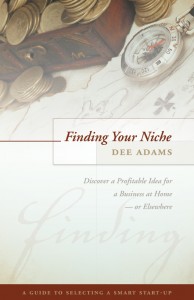Book Update: Finding Your Niche 2017
New book brochure
available for download
Excerpt
This updated edition contains
more than fifty revisions.
New links for educational content are
sprinkled throughout chapters. You’ll find
an article reprint on work-life balance and time
management issues. And fifteen book titles
have been added with an asterisk to the
bibliography. A children’s book,
entrepreneurship in African American
communities during the turn of the
twentieth century, public speaking,
skill set evaluation, and tips and
strategies for finding information are included.

